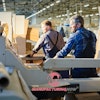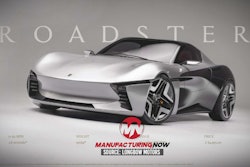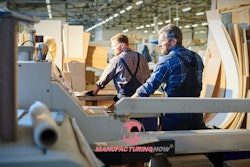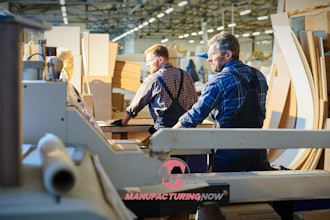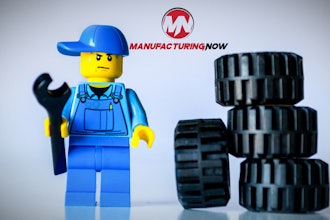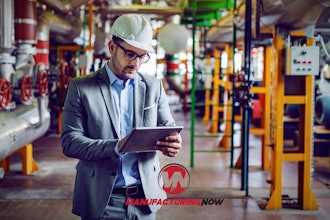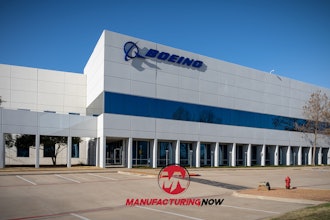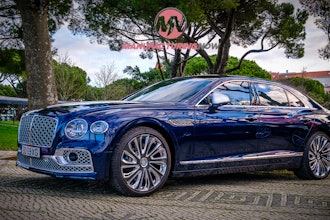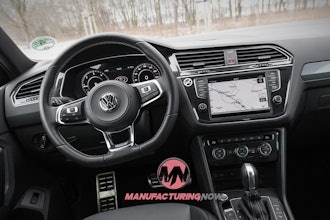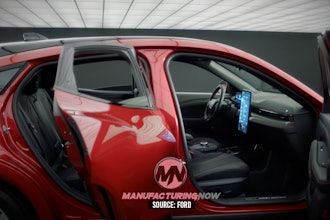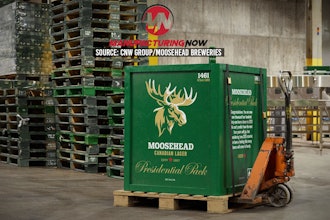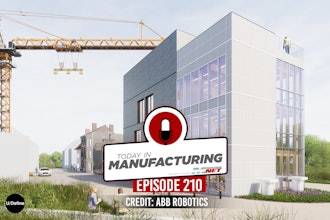ABB Robotics recently partnered with UK construction technology company Automated Architecture (AUAR) to build ConstrucThor, a new research facility in Belgium, to showcase the future of sustainable construction.
The companies want to automate building processes with robotic mobile micro-factories that build cost-effective and high-quality timber frame panels for walls, floors and roofs. AUAR’s automated construction system employs ABB’s robots for modular assembly. The robots use vision and AI capabilities to boost speed, flexibility and consistency, so panels and housing structures can be made quickly, with reduced waste.
Most Read on IEN:
According to the companies, a robotic micro-factory can make the core and shell of a single home in less than 12 hours, which can then be quickly assembled on-site.
Once it opens, the state-of-the-art ConstrucThor Living Lab in Thor Park in Genk, Belgium, will be a living laboratory used to research energy-neutral infrastructure and climate-neutral building materials.
The project aims to create a climate-neutral, large-scale testing infrastructure that pulls in various research from KU Leuven University and other industry partners to make the construction industry more sustainable.
Craig McDonnell, managing director of business line industries at ABB Robotics, says the global construction industry is responsible for 40% of global CO2 emissions. He says robotic automation can reduce waste and address environmental and workforce challenges facing the construction industry.
The companies think robots could one day be deployed to a global network of local micro-factories, allowing housing to be manufactured close to its final locations with minimal onsite construction required.
AUAR already has micro-factories in the UK, Belgium and the U.S. Next year, the firm plans to expand to 10 micro-factories, adding seven partners across Europe and North America.
AUAR licenses its micro-factory concept and all digital technology to home builders, the price starts around $300,000 plus an ongoing licensing fee. Last year, the company said its system could cut labor costs by 30% and supply chain, transport and logistics costs by 80%.
AUAR uses a Hardware-as-a-Service/Design-as-a-Service business model. By 2030 the company hopes to grow to more than $1.3 billion in revenue.
Click here to subscribe to our daily newsletter featuring breaking manufacturing industry news.
WEBVTT
X-TIMESTAMP-MAP=LOCAL:00:00:00.000,MPEGTS:0
00:00.009 --> 00:05.440
Abb Robotics recently partnered with UK
construction technology company Automated
00:05.440 --> 00:12.319
Architecture to build Construct Thor, a new
research facility in Belgium to showcase the
00:12.319 --> 00:16.639
future of sustainable construction.
The companies want to automate building
00:16.639 --> 00:22.719
processes with robotic mobile micro factories
that build cost effective and high quality
00:22.719 --> 00:25.950
timber frame panels for walls, floors, and
roofs.
00:26.079 --> 00:31.937
AUAR's automated construction system employs.
A bes robots for modular assembly.
00:32.068 --> 00:35.298
The robots use vision and AI capabilities to
boost speed,
00:35.347 --> 00:40.908
flexibility, and consistency, so panels and
housing structures can be made quickly with
00:40.908 --> 00:44.588
reduced waste.
According to the companies, a robotic micro
00:44.588 --> 00:49.417
factory can make the core and shell of a single
home in less than 12 hours,
00:49.748 --> 00:52.458
which can then be quickly assembled on site.
00:52.658 --> 00:56.638
Once it opens, the state of the art struct Thor
Living Lab in Thor Park,
00:56.708 --> 01:01.965
Belgium will be a living laboratory.
Used to research energy neutral infrastructure
01:01.965 --> 01:06.496
and climate neutral building materials.
The project aims to create a climate neutral
01:06.496 --> 01:11.805
large scale testing infrastructure that pulls
in various research from KU Leuven University
01:11.805 --> 01:16.466
and other industry partners to make the
construction industry more sustainable.
01:16.655 --> 01:21.286
Craig McDonald from ABB Robotics says the
global construction industry is responsible for
01:21.286 --> 01:27.176
40% of global CO2 emissions.
He says robotic automation can reduce waste and
01:27.176 --> 01:30.403
address environmental and.
Workforce challenges currently facing the
01:30.403 --> 01:33.643
construction industry.
The companies think robots could one day be
01:33.643 --> 01:39.844
deployed to a global network of local micro
factories, allowing housing to be manufactured
01:39.844 --> 01:43.954
close to its final locations with minimal
on-site construction required.
01:44.124 --> 01:48.194
AUAR already has these micro factories in the
UK, Belgium,
01:48.253 --> 01:49.594
and the United States.
01:49.863 --> 01:55.543
Next year, the firm plans to expand to 10 micro
factories, adding 7 partners across Europe and
01:55.543 --> 01:57.603
North America.
AUAR license.
01:57.722 --> 02:02.141
Its microfactory concept and all digital
technology to home builders.
02:02.192 --> 02:06.262
The price starts around $300,000 plus an
ongoing licensing fee.
02:06.592 --> 02:12.712
Last year, the company said its system could
cut labor costs by 30% and supply chain
02:12.712 --> 02:19.111
transport and logistics costs by 80%.
The company uses a hardware as a service and
02:19.111 --> 02:20.662
design as a service business model.
02:20.951 --> 02:26.951
By 2030, the company hopes to grow to more than
$1.3 billion in revenue.
02:27.470 --> 02:28.600
I'm David Manti.
02:28.809 --> 02:30.160
This is manufacturing now.


